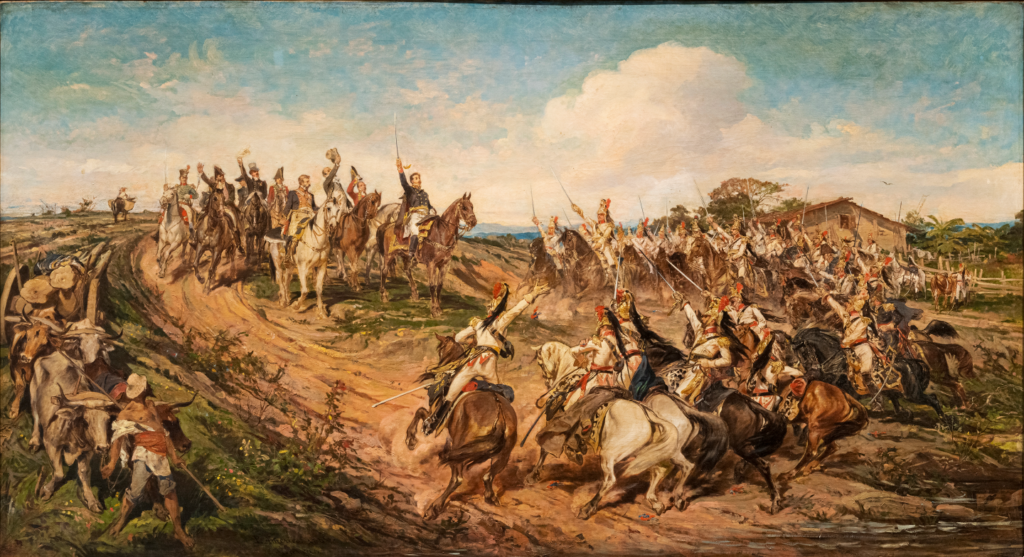Brazil's independence process in 1822
In 1822, Brazil was under Portuguese rule, experiencing a time of great political turmoil and dissatisfaction among the population. Precarious economic conditions and exploitation by the Portuguese Crown led to dissatisfaction and the desire for independence.
The actions of Dom Pedro I were decisive in this process. On September 7, 1822, on the banks of the Ipiranga River, in São Paulo, Dom Pedro uttered the famous “Grito do Ipiranga”, declaring the independence of Brazil. This symbolic act marked the official beginning of the independence process.
After the cry, diplomatic negotiations and political maneuvers were carried out that culminated in the official proclamation of Brazil's independence. Portugal recognized independence in 1825, putting an end to colonial rule and allowing the consolidation of the Empire of Brazil.
This historical period was fundamental for the formation of Brazilian national identity, establishing the country's foundations as an independent nation. The figure of Dom Pedro I is revered as the “liberator” of Brazil and his legacy is celebrated to this day.
In conclusion, Brazil's independence process in 1822 was a milestone in the country's history, representing the fight for freedom and the construction of a national identity. The actions of Dom Pedro I were essential for the completion of this process, leaving a lasting legacy for future generations.
FAQs
1. Why did Brazil want to become independent from Portugal?
The precarious economic situation and exploitation by the Portuguese Crown led to dissatisfaction and the desire for independence.
2. What were Dom Pedro I’s decisive actions in the independence process?
The cry for independence on the banks of the Ipiranga River and the official proclamation of Brazil's independence were decisive actions by Dom Pedro I.
3. When did Portugal recognize Brazil's independence?
Portugal recognized Brazil's independence in 1825.
4. What was Dom Pedro I's legacy to Brazil?
Dom Pedro I is revered as the “liberator” of Brazil, leaving a lasting legacy for future generations.
5. How did Brazil's independence process impact the formation of national identity?
The independence process established the country's foundations as an independent nation and was fundamental to the formation of Brazilian national identity.
